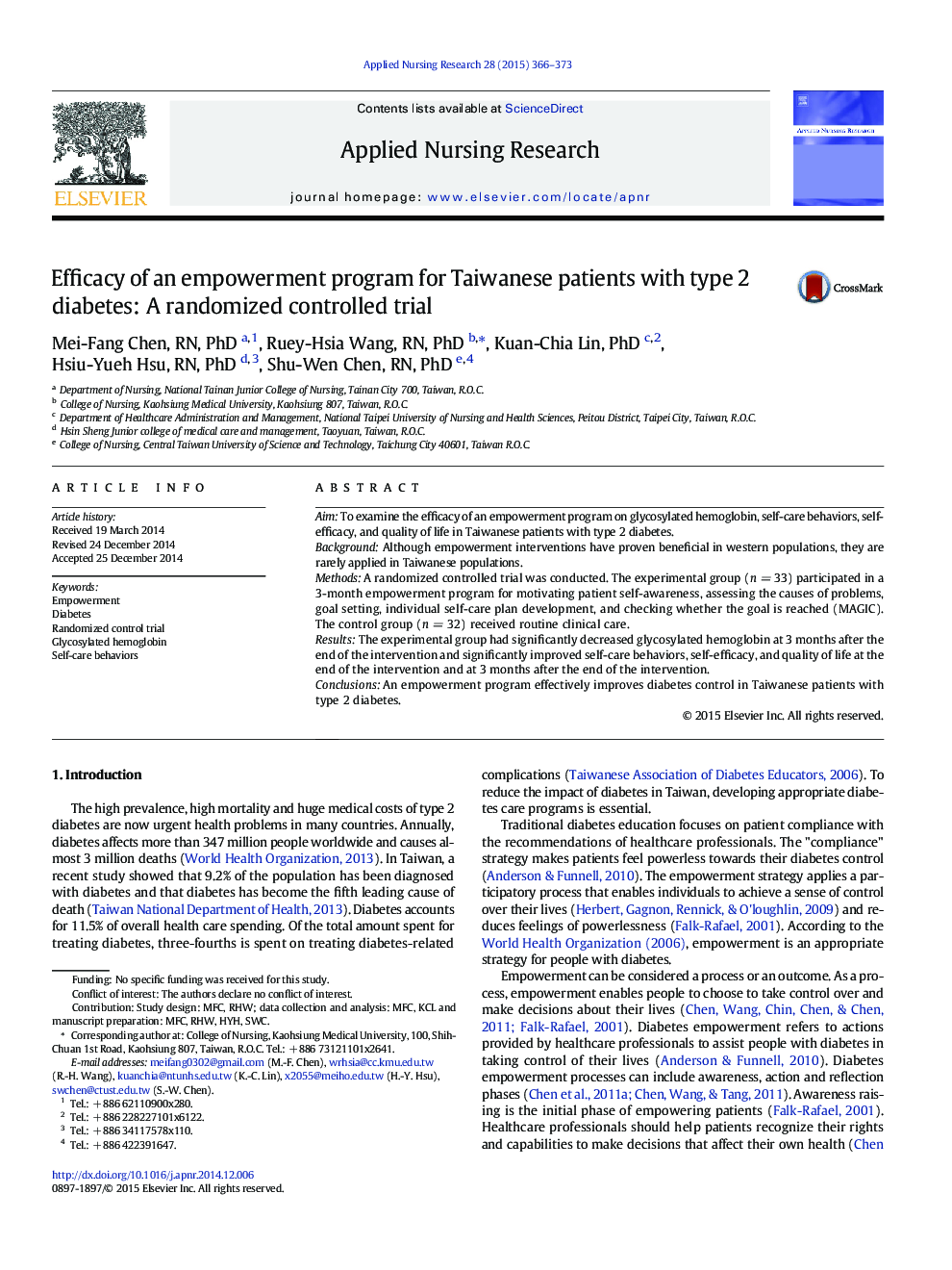| Article ID | Journal | Published Year | Pages | File Type |
|---|---|---|---|---|
| 2644506 | Applied Nursing Research | 2015 | 8 Pages |
AimTo examine the efficacy of an empowerment program on glycosylated hemoglobin, self-care behaviors, self-efficacy, and quality of life in Taiwanese patients with type 2 diabetes.BackgroundAlthough empowerment interventions have proven beneficial in western populations, they are rarely applied in Taiwanese populations.MethodsA randomized controlled trial was conducted. The experimental group (n = 33) participated in a 3-month empowerment program for motivating patient self-awareness, assessing the causes of problems, goal setting, individual self-care plan development, and checking whether the goal is reached (MAGIC). The control group (n = 32) received routine clinical care.ResultsThe experimental group had significantly decreased glycosylated hemoglobin at 3 months after the end of the intervention and significantly improved self-care behaviors, self-efficacy, and quality of life at the end of the intervention and at 3 months after the end of the intervention.ConclusionsAn empowerment program effectively improves diabetes control in Taiwanese patients with type 2 diabetes.
